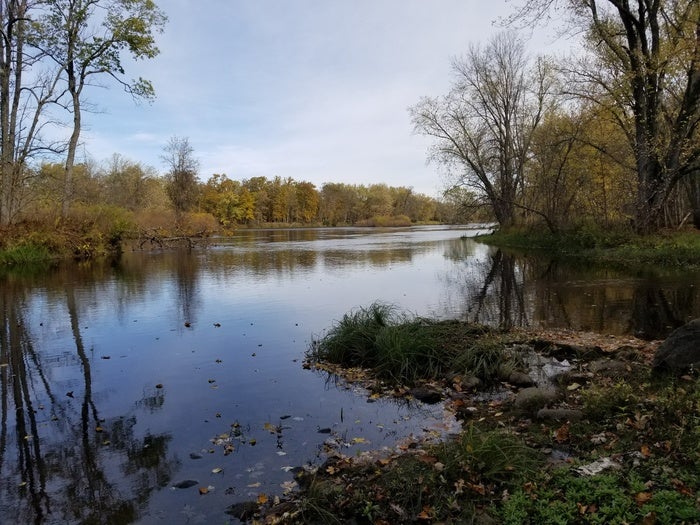Menominee Tribe Files Appeal to Protect Cultural Resources and Menominee River
Back Forty Mine would irreversibly harm Menominee River, surrounding wetlands and irreplaceable cultural resources
Contact
The Menominee Indian Tribe of Wisconsin filed a court appeal today in a bid to protect its ancestral homeland and sacred sites from a large zinc-and-gold mine on the banks of the Menominee River. Canadian mining company Aquila Resources, Inc. holds permits to build the Back Forty Mine, an open-pit mine and minerals-processing facility on the Michigan side of the Menominee River and within the ancestral homelands of the Menominee Tribe.
The Back Forty Mine will be located within a landscape that features significant ancient Menominee Tribal cultural resources, including tribal burial grounds, historic agricultural sites, and ceremonial sites. Mining operations will destroy these irreplaceable resources and irreversibly harm the Menominee River and nearby wetlands. The mine pit, located a mere 50 yards from the river, will span at least 84 acres and stretch far beneath the river’s natural waterline, affecting water levels and hydrology for decades. The Menominee River forms part of the border between Wisconsin and Michigan and empties into Green Bay in Lake Michigan.
The Tribe, represented by the nonprofit environmental law firm Earthjustice, filed today in the federal Seventh Circuit Court of Appeals. It appealed a December decision from the Federal District Court for the Eastern District of Wisconsin that dismissed the Tribe’s claims against the federal government. The Tribe went to court in January of 2018 asserting that the federal government had improperly abandoned its obligation to exercise jurisdiction over Clean Water Act permitting for the mine, by allowing the State of Michigan to oversee and control what should have been a federal permitting process. The Tribe further asserted its rights under the National Historic Preservation Act to consult on the protection of its cultural and historical sites. In December, the court rejected the Tribe’s claims on a preliminary motion by the federal agencies and the mining company and dismissed the case, disallowing full briefing and hearing of the issues.
“The importance of the Menominee River and the Menominee’s history and culture cannot be overstated,” said Menominee Tribal Chairman Douglas Cox. “The Menominee Tribe is prepared to see this through to ensure the full federal protections of the Clean Water Act and the National Historic Preservation Act and to ensure that the federal and state governments do not continue to ignore the Menominee Tribe’s concerns. This large mine-development will affect other tribes, multiple states, fishing and recreation industries in two states, downstream communities and wildlife, and ultimately the health of our Great Lakes, the most precious bodies of freshwater in the world. The risks to our cultural heritage and to the environment from this large source of pollutants, which includes risks to regulated wetlands, are simply too great for the Menominee Tribe to turn away from.”
“The Menominee River does not ‘belong’ to the State of Michigan,” noted Janette Brimmer, lead Earthjustice attorney on this case. “Recognizing the importance of interstate and commercially-used waters, such as the Menominee River, the Clean Water Act requires the federal government to retain jurisdiction and apply federal safeguards for the shared benefit of all. We will seek review of the lower court’s decision to summarily and prematurely dispose of the Menominee Tribe’s claims.”
The Tribe contends that the U.S. Army Corps of Engineers and the U.S. Environmental Protection Agency must take primary responsibility for overseeing the Clean Water Act wetland permit for the Back Forty Mine and that the permitting authority for this project is not properly delegated to the State of Michigan. The Tribe further contends that the federal agencies retain an obligation under the National Historic Preservation Act to consult with the Tribe concerning the negative impacts to important cultural and historic resources along both sides of the river.
Reporter Background

Additional Resources
About Earthjustice
Earthjustice is the premier nonprofit environmental law organization. We wield the power of law and the strength of partnership to protect people's health, to preserve magnificent places and wildlife, to advance clean energy, and to combat climate change. We are here because the earth needs a good lawyer.